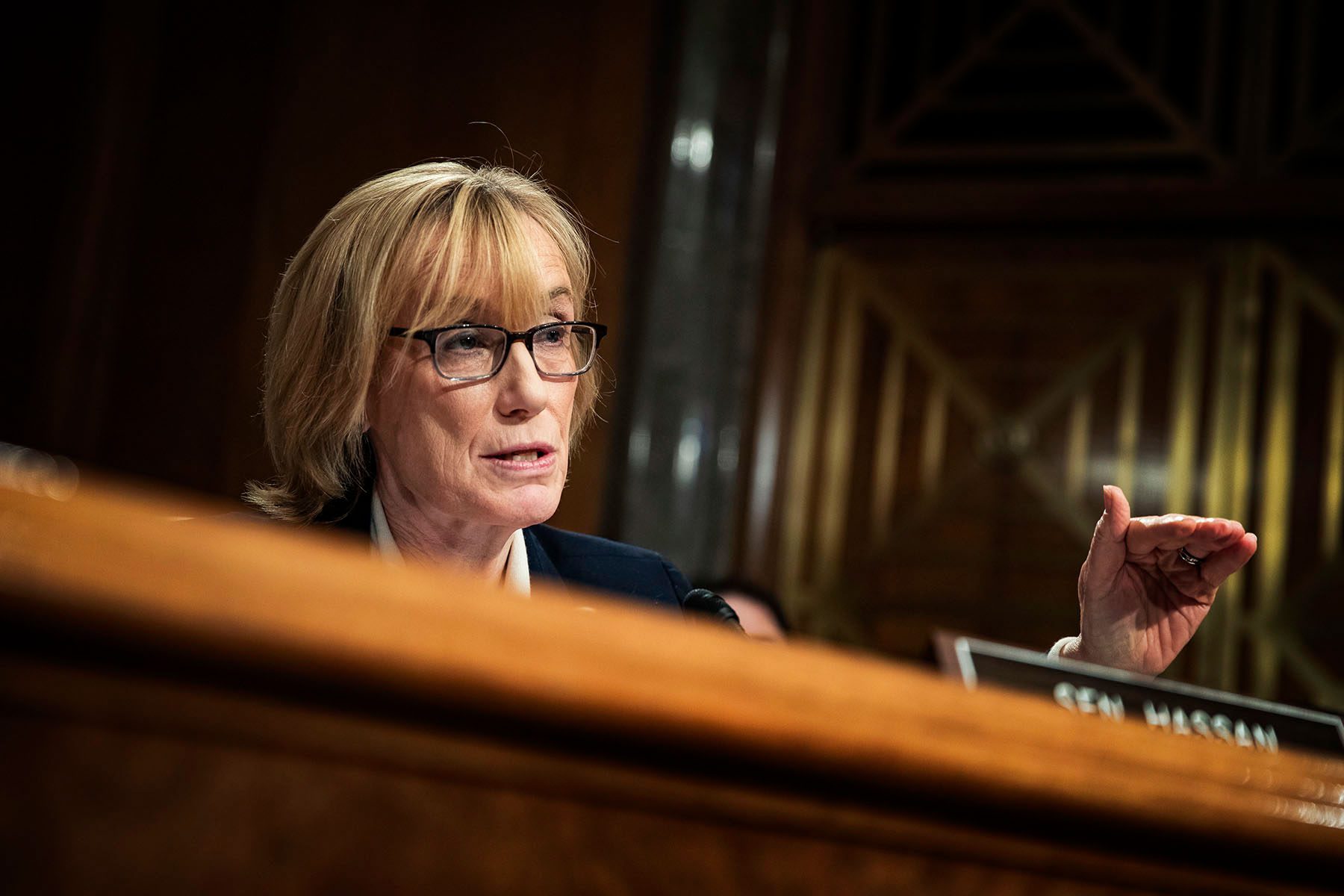Sen. Maggie Hassan doesn’t often dominate headlines and cable news chyrons. The New York Times has described her as “low-key.” POLITICO called her “quiet” and “reserved.” But in an interview with The 19th, Hassan, a moderate Democrat from New Hampshire, laid out one of her major priorities in ongoing reconciliation discussions: Home care for people with disabilities and seniors, funded through Medicaid — an issue that is close to home for the senator.
Hassan has been an advocate for home care funding since she entered politics. For her, the issue is personal: Her son, Ben, has cerebral palsy and needs around-the-clock support. Hassan credits her career to his care workers, especially his primary care worker, who has been with him for over 30 years.
“I was able to work outside the home, develop a profession and support my family because I was able to find a talented caregiver I could partner with,” Hassan said.
Still, the future of the funding Hassan is fighting for is unclear. Reconciliation spending is frequently positioned as a standoff between the moderate and progressive wings of the Democratic party. Progressives, the story goes, want to spend more across the board, while moderates want to spend less. Hassan thinks that framing isn’t quite right, at least when it comes to funding home care.
“I don’t see [home care] as a conservative, liberal or moderate issue,” she said. “I see it as an American issue that has been neglected in a lot of ways. People with disabilities have been overlooked for so much of our history.”
The amount of funding for home care is still being negotiated. President Joe Biden initially promised $400 billion to bolster long under-funded Medicaid home and community-based services. More recently, Huffington Post reported that amount may be cut in half. That possibility was reinforced by the House Energy and Commerce, which set the number at $190 billion – less than half.
Hassan has been in the room for Senate negotiations, but she declined to give a dollar amount.
“The overall amount we are going to spend in this reconciliation bill is still being worked out, so it’s hard to know exactly where those numbers are going to land… [I’m] continuing to advocate for additional spending [on home care] in the final package,” she said.
The danger, Hassan said, is underinvestment. “It’s really critical that we invest enough for states to have strong incentives,” she explained. According to Hassan and disability advocates, if the federal government doesn’t commit an adequate amount of money, states may decline to expand their home care programs. This would leave thousands of disabled people and seniors languishing on waiting lists for care. It is hard to say what “adequate” will be, but Hassan seemed underwhelmed with the House Energy and Commerce’s number: “A number of us were hopeful that the House would spend a little bit more in its proposal than it has.”
Hassan believes that increased funding will help solve widespread problems in the home care industry: turnover and worker shortages. Almost two thirds of professional caregivers quit within a year, according to industry group Home Care Pulse’s annual benchmarking study. Home care workers face low pay and long hours, with little room for advancement. The home care funding in the reconciliation bill could change that.
“We need to make [home care] a profession that can provide longevity and stability, both for the person being cared for and their families, but also for the caregiver… We need to develop a workforce recognizing the creativity and skill and compassion that is necessary to do this work and pay people family-sustaining wages to do it.”
Hassan worried about her son’s safety over the course of the pandemic, “It was scary,” she said. His disability makes him especially vulnerable to respiratory viruses. “We’ve been through some touch-and-go pneumonias, so we were very concerned about [COVID],” Hassan said.
Despite her role in the Senate, Hassan’s family struggled during the pandemic. Her husband was able to work remotely and provide care for Ben. Their daughter moved in to help care for Ben as well. The family wanted to limit the number of people Ben interacted with, to keep him as safe as possible from infection.
“The two of them, along with one anchor caregiver, did an awful lot of caregiving during the year of the pandemic,” Hassan said. Ben has been more isolated but, “he’s doing all right.”
In addition to increasing funding, the current proposal would incentivize self-directed care programs, in which disabled people and families choose and hire their caregivers themselves, rather than going through an agency. Self-directed care is one avenue for family caregivers to be paid for their work, which Hassan said is “often unrecognized.”
“We know that many caregivers of people with disabilities or people who are aging, are unpaid caregivers. They’re predominantly women, they’re predominantly women of color,” she said. “For those who do get paid, they get paid a lot less than the work really deserves and demands.”
Underlying home care, Hassan repeatedly emphasized, was freedom of choice. Most retirees, according to AARP, would prefer to stay in their own homes as they age.
“I don’t think it’s a conservative, moderate, or liberal value to support independence and self-determination. That’s supposed to be what all Americans hope for each other,” Hassan said.






